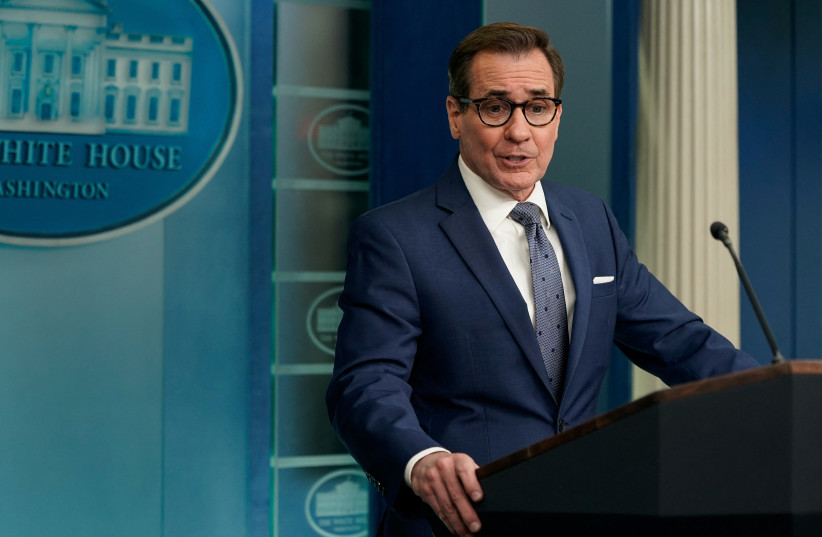Israel vowed to respond to Tehran’s missile and drone attack against the Jewish state early Sunday morning, as the international community urged it to hold back from a direct strike against Iran that would spark an all-out war.
“The firing of so many missiles, including cruise missiles, and drones at the State of Israel’s territory, will be responded to,” Lt. Gen. Herzi Halevi said on Monday night spoke at the Nevatim Air Force base in southern Israel, which Iran targeted and partially hit on Sunday.
“We are weighing our steps,” he stated.
Halevi spoke as Prime Minister Benjamin Netanyahu and the war cabinet continued to weigh different options about an Israeli response.
Foreign Affairs and Defense Committee Chairman Yuli Edelstein said that once a decision was taken, it would be of such a nature that it would be clear to Iran that Israel had taken action.

US National Security Communications Advisor John Kirby told reporters in Washington that the extraordinary defensive military action taken by coalition forces to thwart over 300 incoming missiles and drones sent a powerful statement to Iran.
“The United States has never before so extensively and directly defended Israel from attack,” Kirby stated as he described the operation that revealed for the first time a new regional architecture of US, Israel, Jordanian, British, and French forces.
“Going forward we will be further working to isolate Iran internationally,” he stated.
Iran intended to wreak destruction in Israel and it failed, Kirby said. It did so because it was “defeated by Israel by the United States and by a coalition of other partners committed to Israel's defense.”
It would not have been clear until this weekend, that it was possible to halt an attack with so many ballistic missiles, he stated.
“Much of the world is standing with Israel,” he stated, adding that the US has remained committed to Israel’s defense.
UK's Cameron urges de-escalation, speaks to Iranian counterpart
British Foreign Secretary David Cameron told LBC Radio on Monday morning, adding Israel had every right to respond to Iran and that Iran’s use of “ballistic missiles” on Sunday, “in a state on-state attack is a very significant move by Iran.
Despite this, he said, “We’re asking [Israel] as their friends to think with their head as well as heart, to be smart as well as tough, to recognize Iran has failed and the best way to deescalate the situation is not to attack back.
“The best way to de-escalate the situation is not to attack back,” but rather to pivot back to Gaza to find a way to return the hostages, and conclude the Israel-Hamas war, he said.
Cameron said that he has spoken twice to his Iranian counterpart in the last seven days, about the escalating tensions between Israel and Iran.
Iran has suffered a failure with Sunday’s attack, Cameron said.
“I think the best way to keep people in Israel safe is actually to recognize that an escalation.. is not in anybody's interest not in the interests of people in Israel,” he stated.
French President Macron told BFM TV and RMC radio his country will do all it can to avoid further escalation in the conflict between Israel and Iran in the Middle East, President Emmanuel Macron said on Monday, urging Israel to show restraint in any response.
"We are all worried about a possible escalation," Macron told BFM TV and RMC radio. "We will do all we can to avoid things flaring up, escalating, " Macron said, urging Israel to aim to isolate Iran rather than escalate the situation.
On a visit to China, German Chancellor Olaf Scholz urged Israeli restraint and Berlin summoned Iran's ambassador on Monday morning, according to a German foreign ministry spokesperson.
Russia has refrained from criticizing its ally Iran in public over the strikes but expressed concern about the risk of escalation on Monday and also called for restraint. "Further escalation is in no one's interests," Kremlin spokesman Dmitry Peskov said.
Reuters contributed to this report.
